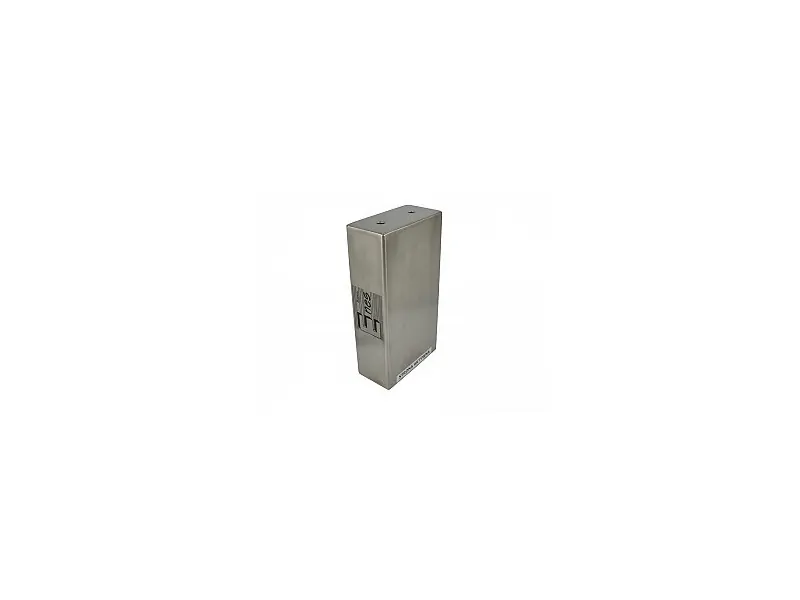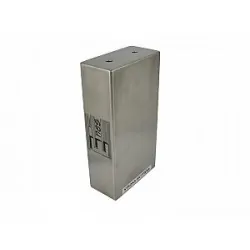- Out-of-Stock



Metal plate spreaders (or spreading magnets) facilitate a safe and efficient removal of the steel plates from a pile. The magnetic flux of the spreader, generated by anisotropic ferrite magnets, penetrates individual plates causing that they are pushed away from each other. The gaps created between the plates allow removing them in an convenient way. The device can be used for magnetically soft metal plates (it is not suitable for acid-resistant, copper, brass, aluminium plates, etc.).
At the Customer's request we can make a model with a mounting clamp and a handle that facilitates handling, as well as spreaders with bigger sizes for the metal plates thicker than 2 mm.
The "S" pole is located on the surface of the working side of the spreader. On the opposite side, there is a safe, small magnetic field with the polarization "N". The designation of the polarity is impressed on the back side of the housing. Interoperation with spreaders from other manufacturers is possible, if the devices have the same magnetic orientation.
The spreaders are recommended for the metal plates with a thickness from 0.5 to 2 mm. However their effectiveness depends on many factors such as: area and thickness of the metal plates, occurrence of rust, extent of contamination, e.g. with oil. For this reason we recommend to check the devices in specific operating conditions. In the case of metal plates with bigger sizes, more spreaders may be necessary.
The spreaders can be screwed permanently to the base. Two M10 holes with the spacing of 60 mm are located at both ends.




WARNING! Careless handling of the device may cause injury of hands!